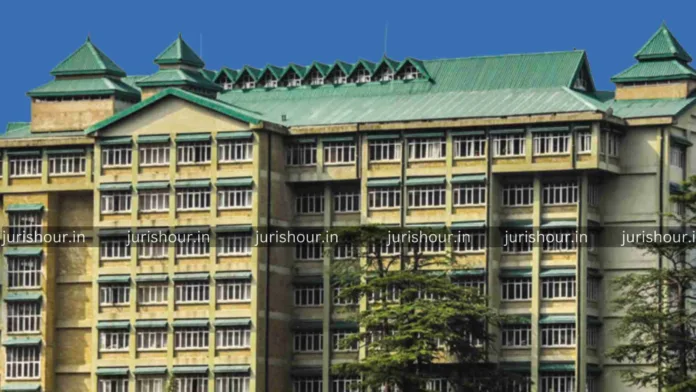The Himachal Pradesh High Court has held that the Assessing Officer (AO) must know reassessment notice has serious civil or evil consequences and cannot be passed so lightly without any reasons.
The bench of Justice Tarlok Singh Chauhan and Justice Sushil Kukreja has observed that the Assessing Officer cannot shirk away from his responsibility of deciding the case on the material available on record by simply observing that “at the preliminary stage, the contention of the assessee is not acceptable and the same requires a detailed examination”.
The bench stated that there is no law which provides that an inquiry contemplated under Section 148A must essentially culminate into a notice under Section 148. Rather, it was incumbent upon the Assessing Officer to decide the case in terms of sub Section (d) of Section 148A on the basis of the material on record including the reply of the assessee, whether or not it is a fit case to issue a notice under Section 148 by passing an order with the prior approval of the specified authority.
The petitioner has not only replied to the show cause notice but submitted all the necessary documents in support of its case and further pointed out that the immovable property purchased by her is not of the value of Rs. 1,21,00,000/- but of Rs. 1,31,63,935/-. The Assessing Officer though passed a detailed order running into almost 10 pages, however, unfortunately no reason whatsoever has been given in support of the conclusion that the escaped income is more than Rs. 50,00,000/-.
What the Assessing Office has done is to simply observe that the case was at a preliminary stage and, therefore, the contention of the petitioner is not acceptable and the same requires detailed examination.
The court held that failure to give reasons amounts to denial of justice. Reasons are live links between the minds of the decision-taker to the controversy in question and the decision or conclusion arrived at. Reasons substitute subjectivity by objectivity. The emphasis on recording reasons is that if the decision reveals the “inscrutable face of the sphinx”, it can, by its silence, render it virtually impossible for the Courts to perform the appellate function or exercise the power of judicial review in adjudging the validity of the decision. Right to reason is an indispensable part of a sound judicial system.
The court held that since the order passed by the Assessing Officer is bereft of any cogent or plausible reasons, the same is set aside.
The court remanded the matter to the Assessing Officer to decide the same afresh in accordance with law. If the Assessing Officer still comes to the conclusion that notice under Section 148 is necessary, then he shall record detailed reasons for arriving at such conclusion. The Assessing Officer is directed to decide the case as expeditiously as possible and in no event later than 31.08.2025.
Case Details
Case Title: Neena Singh Thakur Versus Pr. Commissioner of Income Tax & Anr.
Case No.: CWP No. 3681 of 2024
Date: 14.05.2025
Counsel For Petitioner: Mr. Vishal Mohan, Sr. Advocate with Mr. Praveen Sharma and Mr. Abhinav Bazwaria, Advocates.
Counsel For Respondent: Mr. Neeraj Sharma, Advocate.

